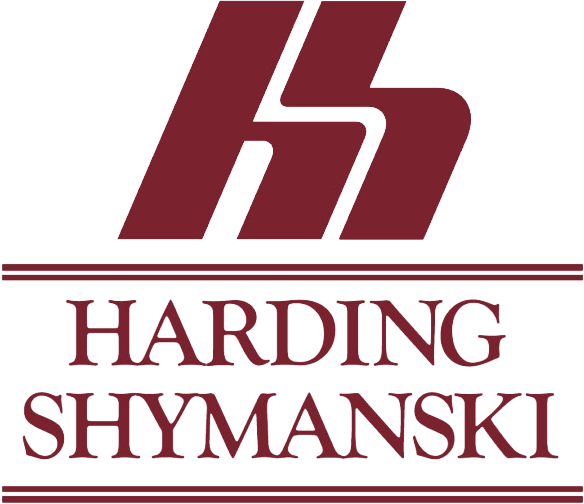Final Rule on surprise medical billing released
Article | September 30, 2022
When it comes to healthcare, understanding the costs of care and what is covered by insurance can be a real challenge. Individuals covered by insurance are often careful to choose doctors and facilities that are in-network and covered by their plan. However, treatments may unknowingly include care from out-of-network providers which are not covered by a patient’s insurance plan. Worse yet, patients receiving emergency medical care may not have the ability to choose medicare care that is in-network and covered by insurance.
Receiving medical care from an out-of-network provider can leave you with a significantly higher bill than if you had received care from an in-network provider. The difference between the billed charge from an out-of-network provider and the amount your health plan paid is called “balance billing” and when unexpected, a balance bill is called a “surprise bill.”
The No Surprises Act (NSA) was enacted as part of the Consolidated Appropriations Act, 2021 (CAA) to help protect patients from surprise medical bills and went into effect on January 1, 2022. In August 2022, the Department of Labor (DOL), Health and Human Services (HHS), and the Treasury jointly released a Final Rule titled “Requirements Related to Surprise Billing” implementing restrictions on surprise medical billing under the No Surprises Act (NSA).
What is the No Surprises Act?
The purpose of the No Surprises Act (NSA) was to end surprise medical bills, help consumers better understand costs before getting health care, and remove them from payment disagreements between their health care providers and health plans. The NSA addresses surprise bills for medical care in any of the following three circumstances:
- A health insurance enrollee receives emergency care at an out-of-network facility or from an out-of-network provider,
- An enrollee requires emergency air-ambulance transportation, or
- An enrollee receives elective non-emergency care at an in-network facility but is inadvertently treated by an out-of-network health care provider.
What are the final rules?
Since the enactment of the NSA, the Departments of Health and Human Services, Labor, and the Treasury have released interim rules to implement the regulations outlined in the NSA. However, several lawsuits vacated portions of the interim rules.
The Final Rule was issued on August 19, 2022, finalizing requirements under the previous interim rules and removing select requirements in light of court rulings and comments received.
If you have health insurance, the new rules:
- Ban surprise bills for emergency services, even if you get them out-of-network and without prior authorization;
- Ban out-of-network cost-sharing (copayments) for all emergency and some non-emergency services. You cannot be charged more than in-network cost-sharing for these services. Also, any cost-sharing you pay counts toward your deductible and maximum out-of-pocket limits for the policy year;
- Ban out-of-network charges and balance bills for supplemental care (like anesthesiology or radiology) by out-of-network providers who work at certain in-network facilities;
- Require that health care providers and facilities give you an easy-to-understand notice explaining that getting care out-of-network could be more expensive and your options to avoid balance bills;
- Finalize changes to the federal independent dispute resolution (IDR) process to determine out-of-network payment amounts between providers and health plans; and
- Stipulate that you cannot be billed more than in-network cost-sharing amounts for services provided by an out-of-network provider at in-network facilities without your signed consent. This rule applies if you have a health insurance plan with an out-of-network benefit, like a Preferred Provider Organization (PPO).
For those who don’t have or use health insurance, the new rules require that you receive a “good faith estimate” of how much your care will cost before you get care. Additionally, they allow you to file a dispute if you are charged more than $400 above the estimate.
Are there exceptions to the new rules?
The protections afforded by the new rules do not apply in all situations.
For instance, if you have a vision or dental-only plan, these new billing protections generally don’t apply to the products and services these plans cover. However, if you have a health plan that includes dental or vision benefits, these protections could apply to any dental or vision services covered by your health plan.
Also, the balance billing protections generally don’t apply to ground ambulance services.
Finally, some health insurance coverage programs already protect against high medical bills. You’re already protected against surprise balance billing if you have Medicare, Medicaid, Indian Health Services, Veterans Affairs Health Care, or TRICARE coverage. As such, the new rules don’t apply to these programs.
This article is intended to provide a brief overview of the Requirements Related to Surprise Billing final rules restricting surprise medical billing. We provide information on federal law updates that could affect our clients as a service. If you’d like to learn more, please contact our office.
Let's Talk!
Call us at (541) 342-5161 or fill out the form below and we'll contact you to discuss your specific situation.
We believe in relationships beyond the numbers.
Harding, Shymanski & Company, P.S.C. is a public accounting firm with offices in Evansville, Indiana, and Louisville, Kentucky. We are one of the largest accounting firms in Southern Indiana and Kentucky, providing experienced professionals who look beyond the numbers to the heart of complex issues.
Our clients range in size from small proprietorships to billion-dollar corporations, from closely-held and family-owned businesses to publicly traded firms. They span nearly every industry: finance, communications, construction, mining, manufacturing, nonprofit, wholesale, retail, transportation, government, health care, and service. They all have one thing in common: they count on our expertise to capitalize on their opportunities and make the best of their challenges.
For more information on how we can assist you, please call (800) 880-7800.


